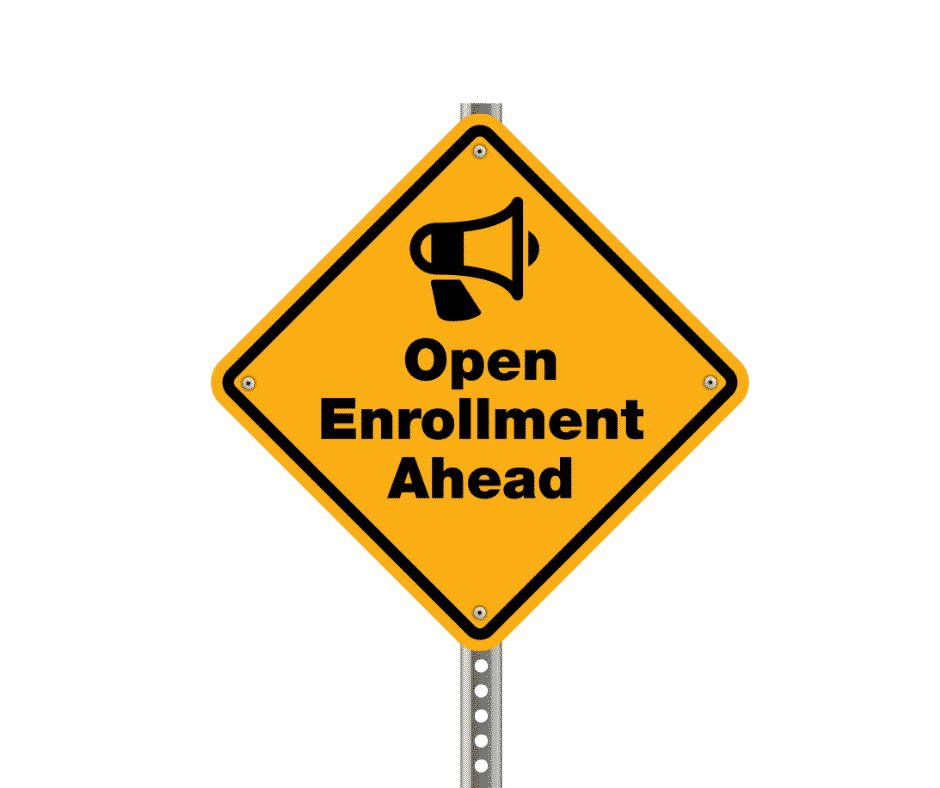Delayed Medicare EnrollmentCategory:
 As much information as there is about Medicare, I’m surprised people still do not remember important Medicare dates. The surplus of commercials, mailers, emails, and advertisements probably do more to obscure and confuse people about Medicare enrollment dates. The first Medicare enrollment date to remember is the most important one.
As much information as there is about Medicare, I’m surprised people still do not remember important Medicare dates. The surplus of commercials, mailers, emails, and advertisements probably do more to obscure and confuse people about Medicare enrollment dates. The first Medicare enrollment date to remember is the most important one.
Medicare Initial Enrollment Period
You are first eligible for Medicare at age 65. You can enroll in Medicare three months before your 65th birthday, the month of your birthday, and three months after your birthday. If you do not enroll, a penalty is permanently added to your Medicare Part B premium if you do not enroll.
The penalty is 10% of your current Part B premium added to your Part B premium for the rest of your life. Yes, it never stops. The 10% penalty is for not being enrolled in Medicare each full year when you were eligible. I have client who cannot verify he had employer health coverage for 4 year. Yes, he has a permanent 40% penalty tacked on to his Medicare Part B premium.
There is also a separate permanent penalty for not having a Medicare Part D plan as well.
The exception is if you have an employer health plan that is as good as Medicare. If you do, then you may defer going on Medicare indefinitely without penalty as long as you remain on a qualifying employer health plan. This is the part that many salespeople leave off in the rush to sell you a supplement or Medicare plan.
The Big Medicare Enrollment Date Is Annual Election Period (AEP)
Once you are on Medicare, you have an opportunity to change your Medicare Part D or Medicare Part C/Medicare Advantage plan during Annual Election Period (AEP). AEP that is from October 15th–December 7th each year.
You need this period because Medicare plans change, and your health needs change. You can switch to a plan that better serves your needs during this time. AEP is particularly important for a person on expensive medications.
Part D and Part C plans can drop prescription drugs, move them to higher tiers, or increase their copays significantly. The Annual Election Period allows people to switch to a plan that covers their medications at a lower cost.
Those on Part C/Medicare Advantage plans may be interested in other Medicare Advantage plans that have lower copays and better benefits. The Annual Election Period (AEP) is an opportunity to shift to a better plan.
For those who want to move to a Medicare Supplement from an Advantage plan or go from an Advantage plan to a Medicare Supplement, this is the time for that switch.
Medicare Advantage Open Enrollment Period (OEP)
A couple of years ago, CMS (Center for Medicare & Medicaid Services) decided to create Medicare Advantage Open Enrollment Period (OEP). OEP is from January 1 — March 31 each year; if you’re enrolled in a Medicare Advantage Plan, you can switch to a different Medicare Advantage Plan or switch to Original Medicare (and join a Medicare Part D prescription drug plan) once during this time.
CMS observed that Medicare beneficiaries change Medicare Advantage plans during Annual Election Period AEP (Oct 15th–Dec 7th), but mistakes happen. The biggest mistake is the plan they switched to did not have their doctors in the network.
Other mistakes happened as well. OEP was an opportunity to rectify the situation. It was a free get-out-of-jail pass. You can make one change to another Part C/Medicare Advantage plan.
Or you could ultimately get out of your Medicare Advantage plan and go back to Original Medicare (Part A & Part B) and purchase a Part D plan.
 The Lesser-Known Medicare Enrollment Date Is General Election Period
The Lesser-Known Medicare Enrollment Date Is General Election Period
Another Medicare enrollment date to remember is January 1-March 31 each year for those who missed their initial enrollment period. This is called the General Enrollment Period. Your coverage, however, does not start until the following July 1. You might pay a monthly late enrollment penalty if you don’t qualify for a Special Enrollment Period.
At this time, you may have an open enrollment period for a Medicare Supplement starting in July. You may also enroll in a Part D plan, but you will need to wait until Annual Election Period in October to enroll in a Medicare Advantage plan.
 Special Enrollment Periods
Special Enrollment Periods
There is a myriad of Special Enrollment Periods. One of the most common is when someone is past 65 and 4 months and losses their employer’s health plan. At this time, CMS will allow you to enroll in Medicare Part A and Part B without delay or penalty if you can verify employer health coverage.
Some additional forms need to be completed and submitted to the Social Security Administration. Still, you will be enrolled on the date of your choosing and not need to wait for General Election Period.
Rules & Penalties
Medicare has lots of rules, regulations, norms, and penalties. Some of them are pretty obscure, but there is little to no forgiveness for mistakes or ignorance of the law. If you have questions about Medicare, please call us at 402-614-3389 or check out our blogs and videos on OmahaInsuranceSolutions.com. You can also call Medicare at 800-633-4227 or look on Medicare.gov for information about Medicare enrollment dates to remember.
What is Medicare? A basic question. Or rather, why should anyone care about Medicare? The reason people should care is that most bankruptcies are medical bankruptcies. In other words, if you wish to protect your retirement nest egg from bill collectors, Medicare is important to know about. There are few things that are more disturbing than a pile of medical bills sitting on the kitchen table. The golden years could be tarnished with worrying about actual or potential medical expenses. Medicare–if implemented proper–will protect you from a potential catastrophe. It is critical for people entering into retirement to understand what is Medicare.
What is Medicare?
 Medicare is a Federal health insurance program for people who are 65 and older (or on Social Security disability). It began in 1965 when President Johnson signed it into law. It was designed to provide medical covered to the elderly at a reasonable price. In 1965, few people had health coverage once they stopped working. As a result, many seniors fell into poverty because of burdensome medical expenses. Medicare was a solution to a national problem.
Medicare is a Federal health insurance program for people who are 65 and older (or on Social Security disability). It began in 1965 when President Johnson signed it into law. It was designed to provide medical covered to the elderly at a reasonable price. In 1965, few people had health coverage once they stopped working. As a result, many seniors fell into poverty because of burdensome medical expenses. Medicare was a solution to a national problem.
Medicare Part A
Medicare is divided into two parts: Medicare Part A and Medicare Part B. Medicare Part A has everything to do with the hospital. It doesn’t cost anything because you paid for it during your working years. It was one of the deductions in your payroll taxes. Medicare Part A covers a 100% of the medical expenses incurred in the hospital, but there is deductible that many people are not aware of. The Medicare Part A deductible is currently $1,288. This is NOT an annual deductible. It is a deductible per benefit period, and a benefit period is 60 days. So each event has a deductible, and the time for the event is 60 days. In other words, you could have multiple events and pay multiple deductibles because the event is not limited to just a 60 day period. Each new event, even if it overlaps with another event, has its own 60 day timeline. While rare, it could happen, and probably more importantly, you could pay the Part A $1,288 deductible more than once in any given year.
Medicare Part B
Medicare Part B, however, does cost something. For most people going on Medicare and Social Security in 2016, the Medicare Part B premium is $121.80 per month. It is generally taken out of your Social Security check. Medicare Part B covers doctors’ visits and outpatient procedures, such as X-rays, blood work, emergency room visits, etc. Medicare Part B covers 80% of the cost. Your portion is 20%. The 20% coinsurance, however, is unusual. There is no cap. There is no maximum out-of-pocket. Most group plans you were ever on probably had a maximum out-of-pocket. It may have been $1,000, $2,000, even $10,000, but at some point, you stopped paying and the insurance company covered everything. Medicare Part B does not have that, so 20% of a big number will be a big number. You keep paying your 20% coinsurance as long as the bills come in.
These are the basic building blocks to what is Medicare. You must understand Medicare, Medicare Part A, and Medicare Part B to understand the rest that follows. In the next blogs and videos, we will cover how to get Medicare, how to cover the Part A deductible, and how to fill the unlimited 20% gap in Part B coverage.
Delay Medicare Enrollment
Many people work past 65. They continue on with them employer group coverage. They delay Medicare enrollment. At 66+, they wonder what to do about Medicare.
How to Enroll after 65
Here is what to do. Go to Medicare.gov. Click on “Forms, Help, Resources” on the top right. Then click on “Medicare Forms” on the left middle. You will see the enrollment forms in the middle of the page in PDF form. There are two forms: one to enroll in Medicare Part B and a second for your employer to sign off on your coverage. You fill out the enrollment in Part B. Give the second form to your employer. Your employer will verify that you have had health coverage as good as Medicare since you turned 65. They will sign the form. It is important for you to write in the date that you wish your Medicare Part B to start. Give yourself enough time to find a Medicare plan and prescription drug plan. (There are much shorter and restrictive time limits when you have delayed Medicare Part B enrollment.) Drop the forms in the mail or hand deliver them to the local Social Security office.
Medicare Employer Enrollment Forms
Why do you want to involve your employer with your enrollment in Medicare Part B? If you do not have your employer verify that you had health coverage from the time you could have enrolled in Medicare until the time you did take Part B, Medicare will assume you did not have creditable coverage and will asset a penalty. The penalty is a 10% increase in Part B premium for every year you did not have coverage. That can be significant over time and completely unnecessary. Delay Medicare enrollment at your own risk. Get the form. Your employer is required to verify. The human resource department will know exactly what to do. It is a very simple matter.
At Omaha Insurance Solutions, we help clients who delay Medicare enrollment all the time. We can get this done quickly and easily. Give us a call 402-614-3389. We can email you the forms, walk you through filling them out, and explain what to do.







